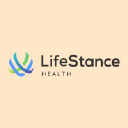Companies
Discover all trending biotech companies
Discover all trending biotech companies

Company Research Platform
Annual Revenue
$ 1,280,000,000
Global Employees
10,218
R&D Investment
42300000
This segment encompasses the core business of LifeStance Health, providing a comprehensive suite of outpatient mental health services. These services include psychiatric evaluations and treatment, psychological and neuropsychological testing, individual, family, and group therapy. The company utilizes a hybrid model, offering care both virtually through its online platform and in-person at its centers across 31 states. Research and development activities focus on refining therapeutic approaches and integrating digital tools to enhance patient care and outcomes. Technologies employed include secure telehealth platforms, electronic health records, and data analytics to personalize treatment plans. The segment addresses a wide range of mental health conditions, including anxiety, depression, bipolar disorder, and PTSD, aiming to improve patient access, affordability, and outcomes. Market positioning is strong due to its extensive network and hybrid service delivery model, providing a competitive advantage in a growing market. Future opportunities include expanding service offerings, geographic reach, and partnerships with primary care providers. Regulatory compliance and clinical validation are critical aspects, ensuring adherence to healthcare standards and patient safety. Partnerships with insurance providers and other healthcare organizations are key to market access and patient care coordination.
This segment focuses on the development and utilization of telehealth and digital health platforms to deliver mental healthcare services. LifeStance Health leverages technology to provide virtual consultations, therapy sessions, and remote patient monitoring. Research and development efforts are directed towards enhancing the user experience, improving the efficiency of care delivery, and integrating data analytics to personalize treatment plans. Technologies include secure video conferencing, patient portals, and mobile applications. The segment addresses the need for accessible and convenient mental healthcare, particularly for individuals in remote areas or with mobility limitations. Patient impact includes increased access to care, reduced wait times, and improved patient engagement. Market positioning is strengthened by the ability to reach a broader patient population and offer flexible service options. Future opportunities involve expanding the range of digital tools, integrating wearable devices for remote monitoring, and leveraging artificial intelligence to support clinical decision-making. Regulatory compliance with HIPAA and other data privacy regulations is crucial. Partnerships with technology providers and healthcare organizations are essential for platform development and integration.